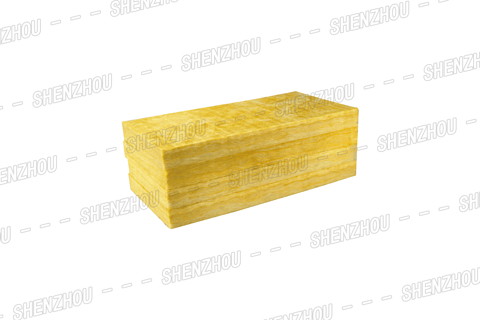
Is glass wool better than Rockwool?
5/31/20245 min read

Glass wool and rock wool, two common insulation materials, are widely used in the construction industry and other industrial fields. However, there have always been different voices and perspectives on the advantages and disadvantages between them. This article will compare glass wool and rock wool from multiple dimensions to reveal their respective advantages and disadvantages, and explore which material is more suitable in different application scenarios.
Categories
Popular
Applications of Glass Wool Board:
Interior Wall Compartments:
Enhances the functionality and aesthetics of interior spaces.
Ceiling Systems:
Provides effective insulation for ceilings, contributing to energy efficiency.
Insulation of Iron Sheet Air Ducts or Bellows:
Ideal for insulating ductwork, ensuring thermal efficiency.
Sound Absorption and Noise Reduction:
Reduces noise levels in machine rooms, creating a quieter working environment.
Exterior Wall Insulation:
Offers insulation for residential building exteriors, contributing to energy savings.
Glass Wool Insulation





Firstly, let's take a look at glass wool. Glass wool is a porous inorganic fiber material made from fused glass fibers, which has excellent insulation, heat insulation, sound absorption performance, as well as high corrosion resistance and fire resistance. In addition, glass wool also has the characteristics of light texture, easy processing, and convenient installation, so it has been widely used in the field of building insulation. However, glass wool also has some shortcomings, such as relatively high prices and the tendency to generate dust during use, which poses a potential threat to human health.
Next, we will focus on rock wool. Rock wool is an inorganic fiber material made from natural rocks through high-temperature melting and fibrosis treatment. Rock wool also has excellent insulation and thermal insulation properties, and its fire resistance is more prominent. In addition, rock wool also has good chemical corrosion resistance and is suitable for various harsh environments. Compared with glass wool, rock wool is more affordable and generates relatively less dust during use, which has a smaller impact on human health.
However, rock wool also has some limitations. Firstly, the high density of rock wool requires more labor and time during installation. In addition, the flexibility of rock wool is relatively poor, making it difficult to bend and cut, which brings certain difficulties to construction. In addition, rock wool has strong hygroscopicity, which may lead to a decrease in insulation performance and even trigger mold growth in humid environments.
After comparing the advantages and disadvantages of glass wool and rock wool, we can see that they have their own applicability in different scenarios. In situations where high insulation performance is required, strict fire resistance is required, and the budget is relatively generous, glass wool may be a better choice. In situations where cost reduction is required, insulation performance is not high, and the construction environment is harsh, rock wool may have more advantages.
In addition, we also need to note that with the advancement of technology and the continuous emergence of new insulation materials, the position of glass wool and rock wool in the market may be challenged. For example, some new insulation materials may have advantages in insulation performance, environmental protection performance, and construction convenience. Therefore, when choosing insulation materials, we also need to fully consider factors such as market demand, technological progress, and cost-effectiveness.
In summary, glass wool and rock wool each have their own advantages, and they have significant advantages in insulation, heat insulation, fire prevention, etc., but at the same time, they also have certain limitations. When choosing to use, we need to conduct a comprehensive evaluation based on specific application scenarios, performance requirements, and budget factors to select the most suitable insulation material. At the same time, we also need to pay attention to the development trends of new insulation materials in the market, in order to make wiser choices in future engineering projects.

Why Choose SHENZHOU Glass Wool Board?
SHENZHOU® Glass Wool Board not only meets the essential requirements of thermal insulation but also excels in sound absorption and noise reduction. Its adaptability to various settings, coupled with the convenience of construction and installation, positions it as a leading choice for architects, builders, and contractors.
In conclusion, the broad application prospects of SHENZHOU® Glass Wool Board make it a comprehensive solution for enhancing comfort, energy efficiency, and acoustic performance across diverse projects. Choose SHENZHOU® for insulation solutions that go beyond expectations.










About Us
Click the button below to get more information about us
Newsletter
Click to subscribe for more information
Follow Us
Contact Us
Address
Dacheng town, Langfang City, Hebei province, China
Phone
+86 185 03165 626


